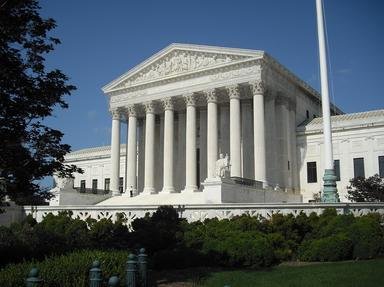Quiz Answer Key and Fun Facts
1. Clarence Thomas was raised as a Roman Catholic and attended many Catholic schools. He was studying to be a priest until what historical event made him change his mind?
2. Thomas graduated from Yale Law School in 1974 and became an assistant attorney general to which Missouri attorney general, who would later become a U.S. senator and the U.S. ambassador to the United Nations?
3. In the late 1970s, Thomas worked as an attorney for which controversial bio-agricultural company that is based in Missouri and is known for producing genetically-modified foods?
4. President George H.W. Bush nominated Clarence Thomas to the U.S. Court of Appeals for the District of Columbia where he met and became friends with which judge, who would later join the Supreme Court with him?
5. Clarence Thomas was nominated to replace which associate justice who was the first African-American to be appointed to the Supreme Court?
6. During Thomas' confirmation hearing, accusations of what and by whom threatened to derail his nomination?
7. Justice Thomas has a reputation for being extremely talkative during oral arguments.
8. Thomas caused some controversy in his dissenting opinion in Hudson v. McMillian when he ruled that what was not cruel and unusual punishment?
9. Commentators have noted that Justice Thomas is a strong defender of First Amendment rights, almost always striking down expression bans. But which of the following expressions did Thomas rule was NOT protected free speech in Virginia v. Black?
10. Justice Thomas is a reliably conservative justice, almost always siding with the other conservative justice. However, in which of the following 5-4 cases, did Thomas serve as the swing vote and side with the liberals?
Source: Author
Joepetz
This quiz was reviewed by FunTrivia editor
trident before going online.
Any errors found in FunTrivia content are routinely corrected through our feedback system.

